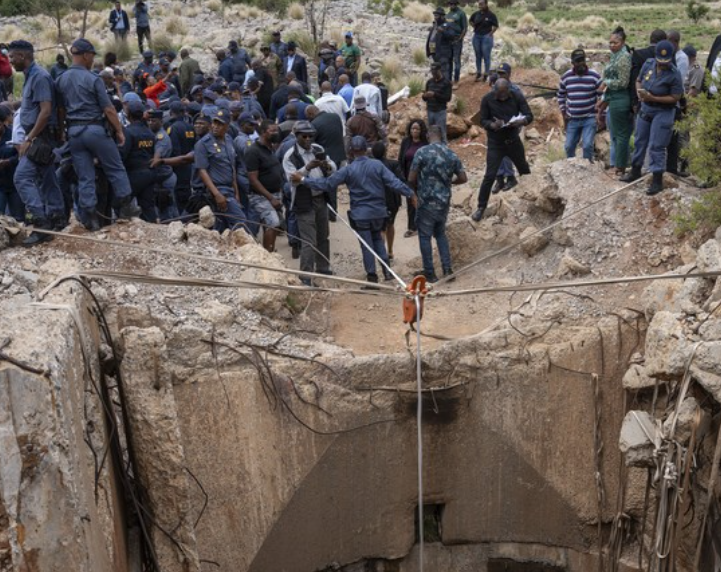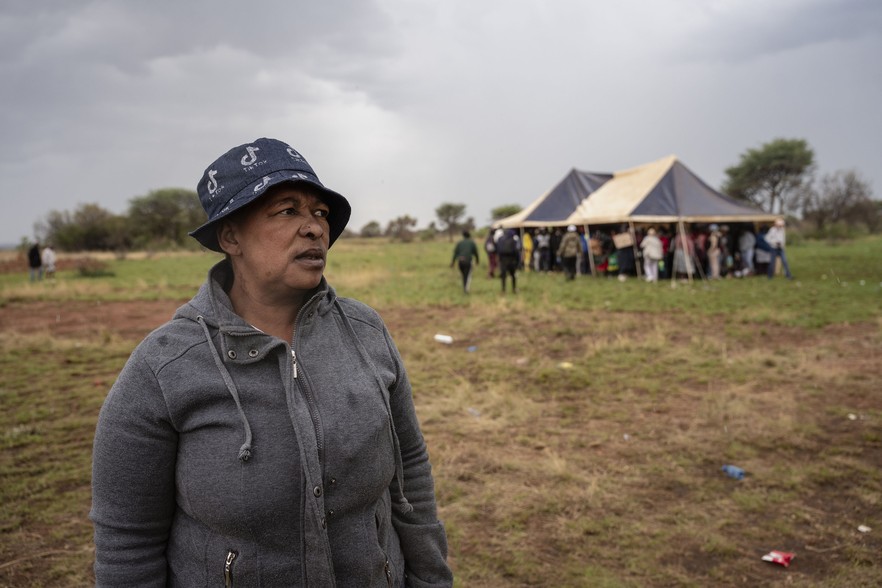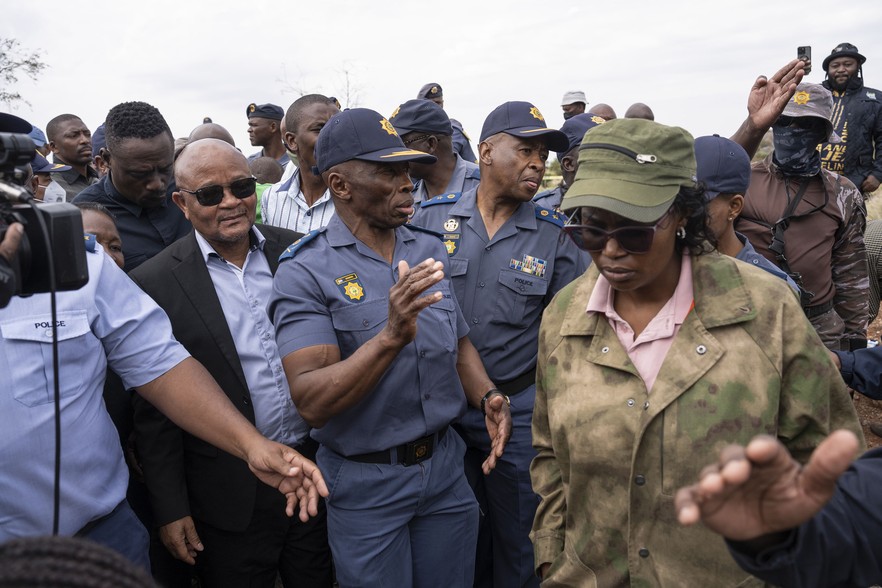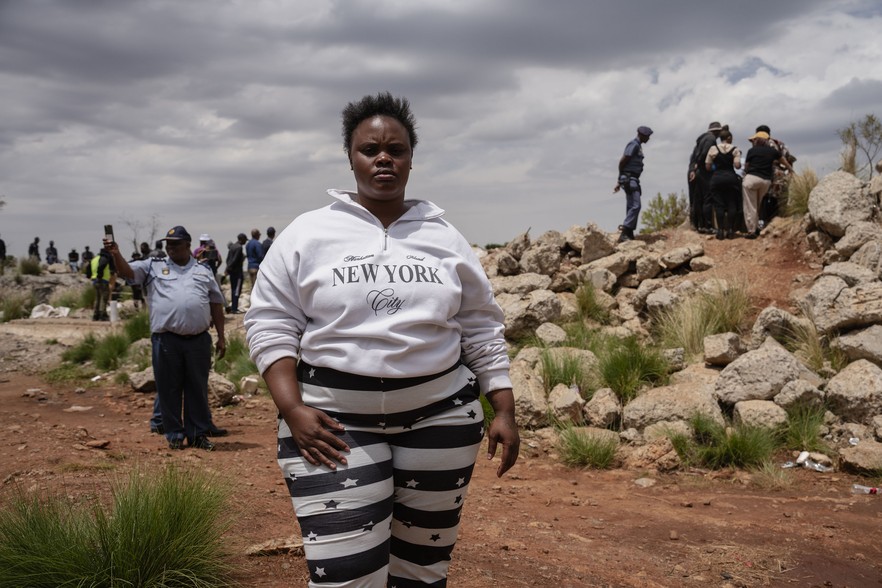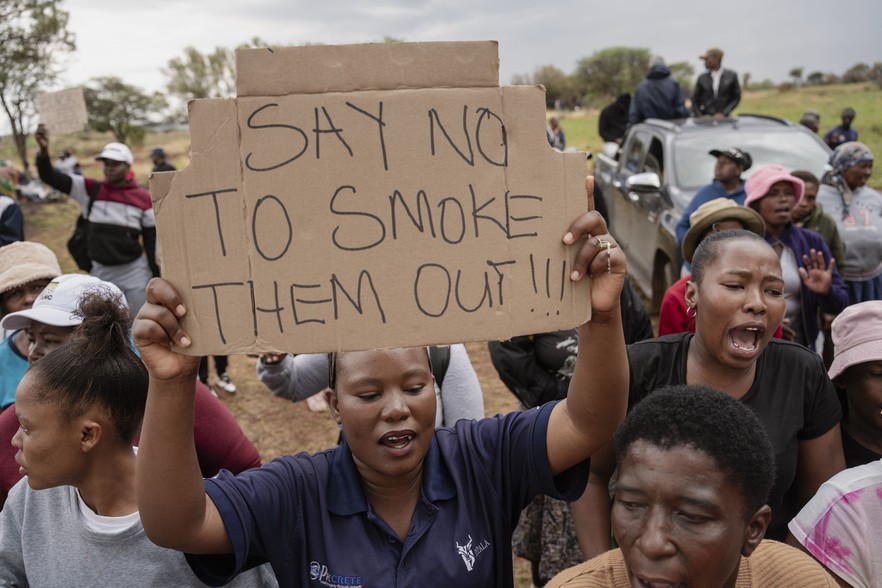Police stand watch over the mineshaft where it is speculated that hundreds of informal gold miners are underground.
Text by Kimberly Mutandiro. Photos by Ihsaan Haffejee.
Angelina Meletsi remembers saying goodbye to her 33-year-old son Skhilo in August, when he left their Khuma home in Stilfontein in North West Province. He was on his way to try his luck in an underground mine nearby, which is about 1,800 metres deep.
Skhilo had been unemployed for years, and Maletsi anticipated that he would come back home with some money.
Zama zamas, informal miners, can spend months underground. There is a network in place to supply them with food and other essentials.
While Skhilo was underground, she only managed to communicate with him a few times, but communication was not easy because his phone remained off while he was underground.
Angela Meletsi says her son is one of the informal miners who is still underground. She believes he has been underground for months.
Meletsi was looking forward to seeing him back home but was told in October that police had closed the mine shaft where Skhilo and many other informal miners worked. She worries that she may never see her son alive again.
“It was the first time that my son was going to the mine, and he got unlucky. Now I’m having sleepless nights, worrying about my son not knowing whether I will ever see him again. The government should help us to rescue our children,” said Meletsi.
Meletsi is one of dozens of family members who have been camping near the mine shaft in Stilfontein for the past week in anticipation, hoping for someone to rescue their loved ones.
Community members watch as Minister of Police Senzo Mchunu inspects the mineshaft.
On Friday, Minister of Police Senzo Mchunu and other delegates visited the mine shaft to assess the situation. During the visit, Khumu community members protested, holding placards, demanding a rescue mission for the trapped miners.
It is estimated that authorities have assisted about a thousand miners get to the surface already, via a different shaft in the area that remains operational.
Thandeka Zinza, whose brother is still down the mineshaft, hopes that he will resurface soon.
Thandeka Zinze said she has not been able to communicate with her brother Senzo for the past four months since he went into the mine and is concerned about his safety.
She said that Senzo had been addicted to drugs before he turned to mining over a year ago. When he started mining he was able to provide for his wife and their two children. Zinze said she would worry about her brother whenever he disappeared into the mine for months. She would occasionally send him chronic medicine through other miners, and he would always come back home. But since October, she has not been able to send him supplies.
“Ever since police closed the mine, I have been worried about whether my brother is still alive or that if he is alive, he is probably weak due to hunger and lack of medical supplies,” she said.
Community representative and former councillor for the area Johannes Qankese said there is an effort to buy and send food to those underground. He added that the community members have also organised ropes and other equipment that can help them to bring the people out.
Community members from the township of Khuma protest at the mineshaft.
Follow African Insider on Facebook, Twitter and Instagram
Picture: GroundUp
For more African news, visit Africaninsider.com

